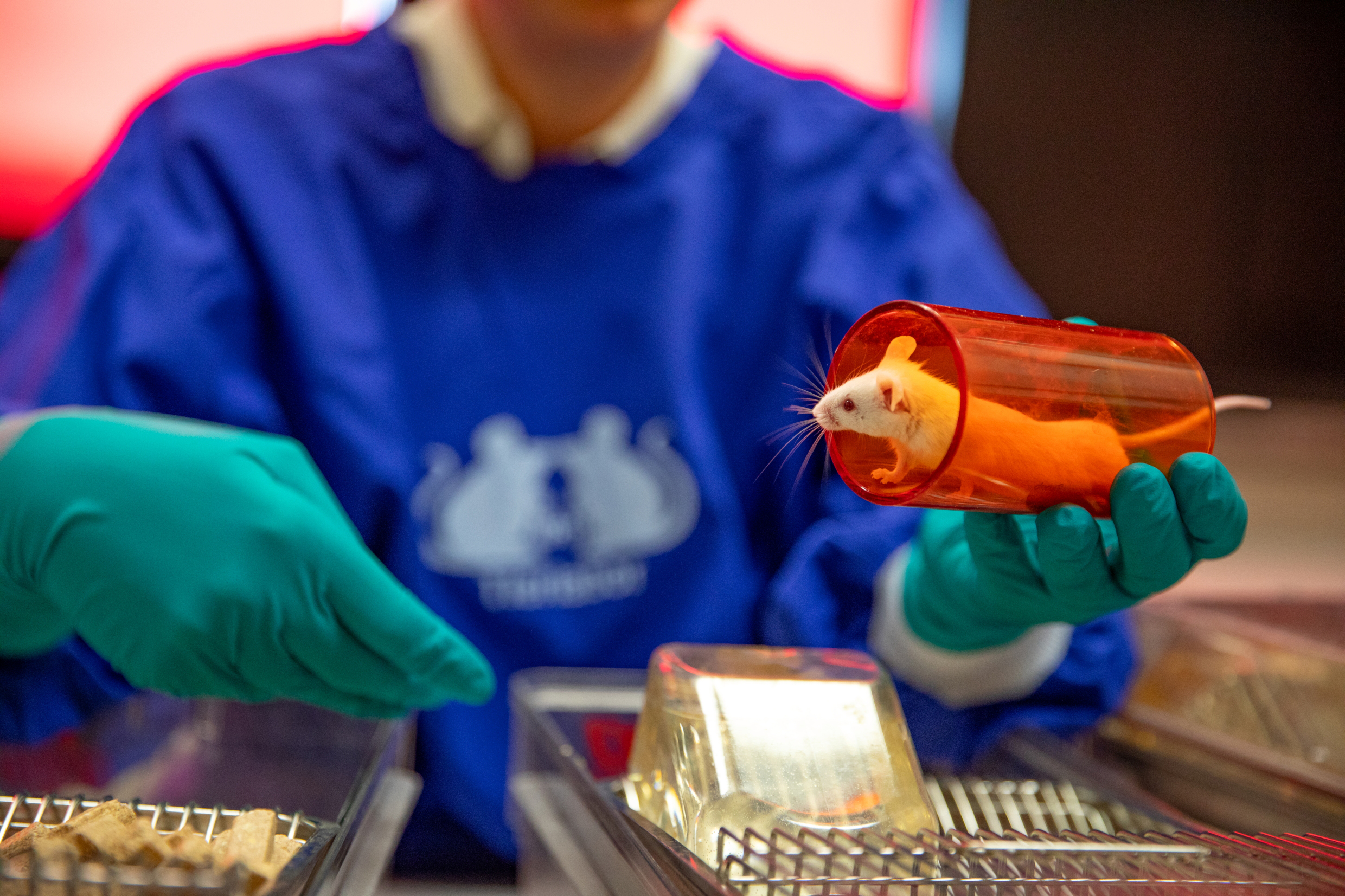MHH research group aims to reduce stress on laboratory animals and once again receives millions in funding from the German Research Foundation (DFG)

Feels at home in the transfer tube: a mouse from the Institute of Laboratory Animal Science. Copyright: Karin Kaiser / MHH
Animal experiments are sometimes unavoidable in medical research. Before new drugs or vaccines come onto the market, a great deal of fundamental knowledge and biotechnological tinkering is required. In addition, drugs and vaccine candidates developed in the laboratory must be tested for their efficacy and tolerability before they are authorised. Before this is done on volunteers, tests on laboratory animals are still unavoidable. In order to make their existence in the service of science as good as possible, the Research Unit (FOR) 2591 "Stress Assessment in Animal Experimental Research" has been investigating how stress on laboratory animals can be recognised, reduced or even avoided altogether at a total of eight scientific institutions in Germany and Switzerland since 2017. The network, led by Professor André Bleich, PhD, Head of the Institute of Laboratory Animal Science and the Central Animal Laboratory at Hannover Medical School (MHH), and Professor Dr René Tolba, Director of the Institute of Laboratory Animal Science at RWTH Aachen University Hospital, has developed a kind of methodological toolbox that is now to be tested for its suitability for widespread use. The German Research Foundation (DFG) has now extended FOR 2591 for the second time and is supporting it for a further two years with a total of around 3.8 million euros. The MHH will receive around 1.6 million euros of this.
Objectively measuring and assessing stress
"Until now, we have been faced with the problem that many methods of minimising stress in laboratory animals had to be based primarily on individual experience and gut feeling," says Professor Bleich. In 13 individual scientific projects, the consortium is investigating how pain, stress and other suffering and damage in laboratory animals can be objectively determined and measured. To do this, the researchers first had to determine which measurement parameters are suitable for recording stress in animals. In addition, formulas were created with which a statement about the severity of the stress can be derived from the measured variables. The various measurement methods and observations from all individual projects were recorded online and summarised in an overview. This has now resulted in a universally valid, standardised scale that can be used to assess and compare different parameters such as body temperature, heart rate and animal activity. "For the first time, this system allows us to objectively assess and improve the conditions for laboratory animals everywhere using the same standards," explains Professor Bleich.
Review in daily routine
Sometimes a simple measure is enough to reduce the stress on the animals, the researchers found. For example, mice at the MHH are transported using a so-called transfer tube - for example when changing cages. "This is much less stressful for the animals than if we pick them up," says Professor Bleich. However, the newly developed method toolbox naturally contains many more instructions for greater animal welfare and can be combined and used for different experimental questions and animal models according to the modular principle. "We now want to present this toolbox to authorities, experts and researchers in the new funding phase and critically review it together with them," says the scientist. "We will then see whether it fulfils the requirements of daily routine or whether it may need to be supplemented by other models and methods that we haven't even thought of yet."
"3R principle" for greater animal welfare
With their project, the scientists are applying the "3Rs principle" for conducting animal experiments. It stands for "Replace" (avoiding animal testing by finding alternative methods), "Reduce" (reducing the number of animals required) and "Refine" (reducing the stress). The results obtained with the new methods should be in line with the severity levels defined in the European Parliament's directive on the protection of laboratory animals. The objective stress assessments are an important step, Professor Bleich emphasises. "The sooner we know that an animal is not doing well, the better."
Text: Kirsten Pötzke